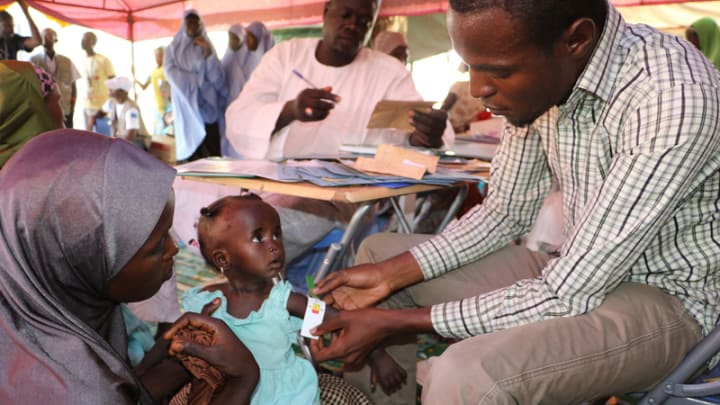
Our jobs at humanitarian and development organizations are only going to get more difficult in the year ahead. To balance budgets, the temptation of many decisionmakers will be to reduce investment in staff training and development — especially for those staff working on the ground in our programs.
Yet, now is the time to re-invest. By making smart decisions, NGOs — large and small, local and international — can retain and develop the key talent they need to operate current programs with less money and to help innovate for the future. How is your organization approaching the skills gap you may be facing? What types of collaborative efforts are you engaged in? What types of credentials are you recruiting for, or encouraging your employees to achieve? Do you feel that you have the right digital tools to take your efforts to a new level? No organization is immune from the challenges that our sector is facing and can take a holistic approach on their own, so now's time to find new ways to work together.
Talent pools: How HR leaders are streamlining recruitment and building diversity
Many organizations, particularly United Nations agencies, are taking an innovative approach to streamlining their often infamously long hiring process while building pipelines of underrepresented groups at the same time. Their solution: talent pools. Here is how your organization can employ best practices to create talent pools of your own.
There are an increasing number of options in our sector for providing low-cost or no-cost, but still relevant and high-quality, professional development. They range from just-in-time online learning options to rigorous professional certifications to professional social networks. As an HR leader, you can select from a range of options to offer an integrated program to your staff.
1. Seek out sector-specific online platforms
To start, there are now several online learning platforms that provide a diverse set of free, just-in-time and self-directed courses across range of topics that are designed specifically for our sector. For humanitarian-specific courses, consider Humanitarian Leadership Academy and Disaster Ready where you can find courses from a range of expert content providers with course titles such as Evaluation in Humanitarian Settings and Soft Skills for Crisis Responders.
Three other initiatives provide free online courses that are relevant across the entire spectrum of development, humanitarian and social sectors: Philanthropy University, the World Bank’s Online Learning Campus, and Last Mile Learning with course topics such as Organizational Capacity: Assessment to Action and Project Monitoring, Evaluation and Control.
Many of these platforms offer a subset of their courses in multiple languages so you can serve a broad cross-section of your staff.
2. Offer sector-specific professional credentials
Increasingly, NGOs and other organizations are moving beyond stand-alone courses and are looking at more comprehensive programs — especially those that offer credentials that are relevant to our sector. For example, PMD Pro, managed by PM4NGOs, have had over 15,000 people earn a project management certification in over 100 countries. PHAP has just launched a new series of certifications for humanitarians in course topics such as Legal Frameworks for Humanitarian Action and Applying Humanitarian Principles. The Humanitarian Leadership Academy is launching the Humanitarian Passport Initiative that will be a digital platform that will centralize the earning and displaying of these and other credentials from our sector.
3. Innovate with free and low-cost tools, resources and courses
Many NGOs are looking to innovate in their programs, practices and business models, but how can we help our staff think and work in new ways? There are a range of solutions that will meet this need with an emphasis on how to drive innovation in a social sector organization. A great starting point for ideas, tools and templates for innovation is the DIY Toolkit from Nesta. Several course providers also have innovation topics, such as Introduction to Human Centered Design or Lean Startup Principles for the Social Sector, including Plus Acumen and IdeaoU. There are also an increasing number of mobile toolkits in other topics such as project management and data security for NGOs and CSOs.
4. Encourage staff to connect with professional networks
There are an increasing number of online social networks that are focused on a range of professional and regional themes and topics. By connecting in these networks, staff and leaders can learn and share with like-minded professionals easily. In a time of change, being able to find solutions to problems, expertise and talent for surge capacity and engage in discussion on emerging challenges. There are so many options to explore, you can start with an aggregate list such as www.how-matters.org/online-communities, or check out sites such as pcdnetwork.org, redcolaborar.org (Spanish), and community.insidengo.org/home.
Over the next month, Devex, together with our partners the Career Development Roundtable and UNFPA, will take a look at how human resources can be a real driver for innovation, efficiency, and impact in global development. Join us as we share the people and ideas leading the next generation of HR by tagging #HRLeads.




